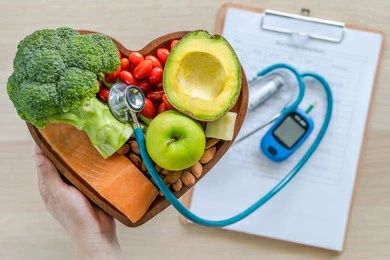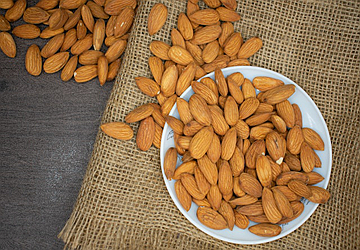Diabetes is one of the most common chronic diseases. How diabetic patients maintain their health is a matter of great concern to the majority of patients and their families. October 13th of each year is World Health Day. Today, we will introduce health care methods for diabetic patients from the aspects of diet, exercise, medication, etc., and clarify common health care misunderstandings to help diabetic patients control blood sugar scientifically.
How do patients with diabetes maintain their health?
1. Diet

First of all, diabetics should follow the principles of regular and quantitative intake, combination of coarse and fine meat and vegetables, more dry food and less thin food, low sugar, low fat, low salt and low oil diet. The daily cooking oil consumption should be controlled within 30 grams, and the daily salt intake should not exceed 6 grams. Cooking is mainly steaming and cold salad. Eat more vegetables appropriately, such as bitter melon, onion, winter melon, cucumber, tomato, etc.; the daily vegetable intake is about 500 grams. The staple food must avoid sticky staple foods such as porridge and mushy noodles.
Fruits can be eaten between meals. And you need to choose fruits with moderate sugar content, such as apples and pears. When fasting blood sugar is less than 7.0mmol/L and postprandial blood sugar is less than 10.0mmol/L, choose to eat fruit.
Diabetics also need to avoid eating midnight snacks, otherwise it will affect the fasting blood sugar level the next day.
2. Exercise
You can choose to walk fast after a meal. Be careful not to exercise on an empty stomach in the morning. It is important to note that if blood sugar exceeds 16.7mmol/L during strenuous physical activity, it should be taken seriously to ensure adequate water intake during exercise.
3. Adhere to medication
In addition, you need to adhere to medication, do not stop medication casually, and pay attention to monitoring blood sugar.

4. Prevent diabetic hypoglycemia
The symptoms of diabetic hypoglycemia are divided into mild, moderate, and severe. Mild symptoms generally manifest as hunger, cold sweats, hand tremors, palpitations, etc. Moderate symptoms include dizziness, weakness, confusion, etc. Severe symptoms include mild damage to cranial nerve function, convulsions, coma, etc.
Continuous hypoglycemia is likely to cause coma and stimulate cardiovascular and cerebrovascular diseases. Therefore, diabetic patients must carry sugar or glucose blocks with them when going out in case of emergency.
5. Prevent infection
Diabetic patients cannot ignore infection. For example, patients with diabetic foot should choose soft and breathable shoes, wear clean and comfortable cotton socks, determine the water temperature before soaking feet to avoid burns, and check whether there are wounds on the feet every day to prevent infection.
What are the common misunderstandings of diabetics in health care?
1. Can you eat more sugar-free foods?
In fact, many sugar-free foods just do not add sweet sugar, and they still contain starch and other ingredients. If the patient does not limit the intake, blood sugar will still rise.
2. Do you still need to control your diet after injecting insulin?
You still need to control your diet after injecting insulin. Because after injecting insulin, you can only steadily control the blood sugar in the patient's body, and the amount of insulin used must be reasonably adjusted on the basis of a fixed diet. If the patient does not control his diet and does not avoid certain foods, his blood sugar will still fluctuate greatly.
3. Can "sugar-lowering foods" lower blood sugar?
The essence of sugar-lowering foods is still food, and they also contain certain nutrients. Many sugar-lowering foods on the market may add some dietary fiber ingredients, which can also play a role in controlling sugar, but they cannot achieve the effect of lowering patients' blood sugar.
How to control sugar scientifically?
French biochemist Jesse Anzospe's "Sugar Control Revolution" puts forward a viewpoint that breaks the misunderstanding at the beginning. It is not only diabetics who need to care about blood sugar. 80% of modern people have blood sugar problems. For diabetic patients, improper eating is the main factor that increases blood sugar, and exercise is the most important way to lower blood sugar.
If you are used to eating staple food for every meal, most people will think that they always feel full without staple food. The more refined the staple food, the stronger its ability to raise blood sugar; plus meat and other foods, it will bring challenges to the metabolic system, and blood sugar will soar all the way. The following five sugar control strategies are for your reference.
1. Contain protein in every meal to improve nutritional value
Some fish, shrimp, seafood, meat, eggs, dairy products and soy products (tofu, soy milk) are rich in high-quality protein, and can also provide vitamins and minerals. This protein-rich food combined with staple food can help lower postprandial blood sugar for the whole meal.
2. Contain green vegetables in every meal to control blood sugar well
Vegetables have high nutritional value and help lower postprandial blood sugar levels. Diabetic patients need to eat more vegetables at each meal, especially green leafy vegetables, and the total amount of vegetables consumed by diabetic patients throughout the day should exceed 500 grams.
3. Improve the order of eating to reduce postprandial blood sugar fluctuations
It is recommended that eating in the order of vegetables, meat, and staple food can reduce postprandial blood sugar fluctuations, and long-term persistence can also significantly reduce postprandial blood sugar and glycosylated hemoglobin levels in diabetic patients.
4. Sit less and move more
Diabetic patients should move their bodies as much as possible after meals. Exercise can control blood sugar, maintain weight, improve insulin sensitivity, and prevent cardiovascular complications.
5. Regular medication
Glycemic-lowering drugs can be said to be a guarantee for diabetic patients to maintain blood sugar stability. Every year, there are patients who suffer from diabetic hyperosmolar coma, sudden heart attack, cerebral infarction, and urgent emergencies due to stopping medication. Therefore, diabetic patients need to maintain basic medication.

(Images from the internet)





